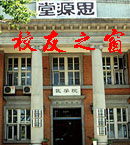

 |
 |
|---|
| |
|
|---|
忠臣不私,私臣不忠 忠臣不私,私臣不忠,履正奉公,臣子之节。 -《後漢書》【註1】 Loyal ministers are unselfish; selfish ministers are not loyal. Integrity and upholding justice in performing official duties are the moral standards for all ministers to follow. 今人之性恶,必将待法然后正,得礼义然后治。今人无师法,则偏险而不正;无礼义,则悖乱而不治。 -《荀子:性惡》【註2】 The evil nature of some people today can only be corrected by enforcing laws; the country will gain peace and prosperity by implementing etiquettes and righteousness. If a man does not have admonitions from the teachers and is not deterred by the law, he will transgress moral principles. If the people do not observe regulations for courtesy and righteousness, they will become disorderly and treasonous, finally becom incorrigible.
【註1】《後漢書》是一部記載東漢歷史的紀傳體史書,由南朝刘宋时的范晔(398年-445年)所著。本书分十纪卷、八十列传和八志(八志自司马彪《续汉书》补入),记载了从光武帝称帝(25年)起至汉献帝禅让(220年)的195年历史。 【註2】荀子(约公元前316年—约公元前237年),名況,被尊稱為荀卿,中國戰國時代儒家學者和思想家。趙國人,曾擔任齊國稷下學宮祭酒、楚國蘭陵令,到趙國、秦國遊說諸侯,宣揚儒學和傳授六經,批評子思、孟子等其他儒者及墨家、道家等其他學派,有韓非、李斯等弟子。其著作後世編為《荀子》一書。作为先秦儒家代表人物,与孔子、孟子合称孔孟荀。 (原载《海外南开人》125期,1/27/2018出版)
|
|
|---|
| Contact 联系 | Last Revised
05/17/2025
| |